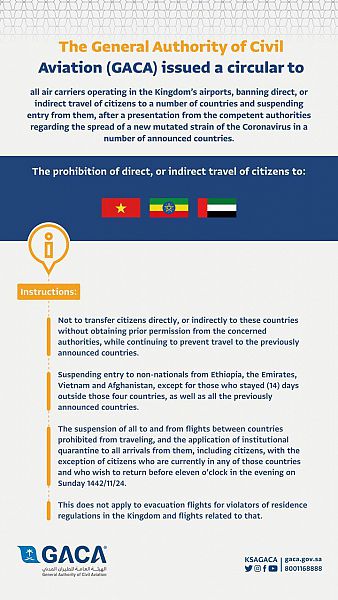
he tone was pleasant, but the message on Steph Nixon’s voicemail contained a threat. Nixon, like thousands of others, had been informed by her travel agent that her package tour of Morocco could not go ahead because of coronavirus restrictions.
Also, like thousands of others, her request for a refund was refused. The agent, TourRadar, claimed it was a “suspension”, not a cancellation, and that she would have to accept a credit note. The tour operator, Intrepid Travel, insisted that a credit note was the only option.
Nixon, who is on furlough and fears for the future of her job, issued a chargeback claim for her £600 via her card company, Amex. That’s when the voicemail message was left.
A TourRadar operative said it was successfully contesting credit card claims and that if she did not drop her case, it would deem her to have cancelled the holiday and breached the contract. She would, therefore, be left without a refund and lose her entitlement to the credit note.
“TourRadar has continued to advise me every day by email that if I don’t withdraw the dispute within 24 hours it will remove the offer of credit and I’ll receive nothing,” she says. “It claims that it doesn’t have long to file paperwork with Amex to fight its side, but Amex tells me that dispute windows have been lengthened to 60 days. I believe they’re trying to put pressure on me by creating a false deadline. I now have no idea what to do.”
The travel industry is facing ruin as Covid-19 continues to wreak havoc on the holiday market. Although consumer law requires firms to refund customers if they cannot provide the goods and services purchased, many are instead offering protected credit notes in a bid to remain solvent. Some appear to be trying to manipulate the law to deter those who are unable or unwilling to rebook their cancelled holidays.
The Observer has been contacted about half a dozen agents who have retrospectively added exemption clauses to their terms and conditions, renamed cancellations “postponements” to avoid payouts or threatened customers who seek to enforce their right to a refund.
The approach by TourRadar, which sells holidays arranged by a range of package tour operators including Intrepid, is troubling.
Customers who do not receive the goods or services they have paid for have the right to make a claim via their card issuer. They can do this either through the voluntary chargeback scheme operated by Visa, Mastercard and Amex – which retrieves the money from the trader’s bank – or, if they used a credit card, under section 75 of the Consumer Credit Act, which requires the card issuer to cover the cost.
Nixon’s booking had already been cancelled by the tour operator before she sought redress from Amex, so it’s absurd for TourRadar to threaten to hold her liable for cancelling it herself.
Nonetheless, an email from customer services informed her that the booking terms and conditions had been amended after the coronavirus outbreak to redefine cancellations as “suspensions”. Amended terms and conditions can’t be retrospectively applied to a contract and the original terms promised a refund if the operator had to cancel.
Moreover, the Package Travel and Linked Travel Arrangements Regulations require operators to issue refunds within 14 days for cancelled trips. Nixon was eventually refunded after approaching Intrepid for a second time.
The Financial Ombudsman Service says it was unaware of companies trying to pressure customers to drop claims. “Consumers have the right to make a complaint about section 75 with their bank and we’ll expect businesses to investigate these complaints thoroughly and treat consumers fairly,” it says.
Amex told the Observer that it took into account the terms and conditions that were in place at the time of the transaction if a card holder raised a dispute. “Our card acceptance agreements require merchants to comply with the laws applicable to their businesses,” it says.
TourRadar claimed that the voice messages were merely a recommendation that Nixon seek a refund directly from the tour operator, despite the fact that its subsequent emails insisted that Intrepid’s refusal was non-negotiable, and none suggested she approach Intrepid again.
“Looking back, we do acknowledge that communication between our team and Ms Nixon was not very clear in explaining this recommendation as typically the most successful route,” says Vanessa Subramaniam, global director of customer support at TourRadar. “We take full responsibility for this. Moving forward, we’ll continue to work on our training to ensure processes like these are carried out in line with best practices and standards in place.” Intrepid Travel was contacted for a comment.
Sheila Pearce was also told that her tour operator’s terms and conditions had been changed retrospectively, denying her the refund promised for her cancelled package holiday. When she attempted to recover the money through the small claims court, she was warned that the company would use pending insolvency legislation to thwart it.
Pearce had booked a £3,640 tour of Pompeii with an award-winning specialist travel company, Andante Travel. She was notified that the trip would have to be cancelled due to the pandemic and was twice promised a refund within six weeks. Instead of her money, she received a message informing her that the booking terms and conditions had been changed and she was only due a credit note.
“We objected on the grounds that we are pensioners with an underlying medical condition, so we will almost certainly never travel abroad again,” says Pearce.
Andante refused to budge and, when she began legal action, its lawyer sent a letter advising that the company could not afford to pay refunds to all its customers. It warned that the directors would not defend her claim so a default judgment would be issued by the court and have to be enforced.
Enforcement is usually done through a petition to wind up a company and, the letter stated, the pending corporate insolvency and governance bill, designed to protect struggling companies during the pandemic, would prevent Pearce doing that.
“It will therefore be the case that in the event that you proceed with your claim and are successful in obtaining judgment, the company will not make payment and will be protected from further enforcement measures by you,” the letter concluded.
The Department for Business, Energy and Industrial Strategy told the Observer that the new rules do not prevent creditors appointing bailiffs to enforce a county court judgment, and that winding up petitions can still be brought once the temporary new insolvency legislation has expired.
“The measures are not a licence for a company not to pay debts which remain legally due and enforceable,” says a government spokesperson. “Where cancellations occur, companies have a legal obligation to ensure their consumers are fairly compensated.”
Jackie Willis, CEO of Andante Travel, says the purpose of the letter is “simply to set the legal position from the company’s viewpoint, having received appropriate professional advice”.
The Competition and Markets Authority (CMA) has set up a taskforce to investigate companies that have behaved unfairly towards customers during the pandemic, including tour operators and holiday lettings companies. The majority of the complaints have been about cancellations and refunds, with 75% about holiday companies and airlines. “The vast majority of businesses are behaving in a reasonable way, but the CMA will not hesitate to take enforcement action if there is evidence that businesses have breached competition or consumer protection law,” it says.
Pearce is still without her £3,640. Andante Travel promised customers that they can claim a refund if they do not use their credit notes before they expire at the end of March 2021, but Pearce does not want to wait a further nine months.
“I feel they are, in effect, using our money as an interest-free loan without any agreement on our part,” she says. “This is causing us considerable stress, to say nothing of the disappointment from losing the chance to visit Pompeii which we have planned for 40 years.”












